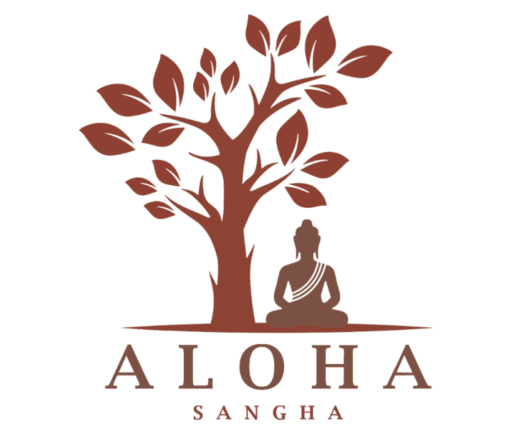guns n’lotuses
The prominent Buddhist teacher, author, and activist, Joan Halifax, on the day of this shooting tweeted “I want to live in a country that loves its children more than its guns.”
I would like to wish everyone a thoughtful International Woman’s Day (today, March 8, 2018). Here in the USA, the #MeToo and the Time’s Up movements have deservedly captured positive media coverage. Not long ago, Time Magazine honored the movements with their Person of the Year award. Last week, the Academy Awards haltingly celebrated their message.
Yet, there is a troubling backlash.
#never again
This week I would like to discuss a sister movement, which also started and grew dramatically on social media, and is also experiencing backlash – #NeverAgain. This movement began with twenty students who survived the shooting at Marjory Stoneman Douglas High School in Parkland, Florida in which 17 of their classmates were gunned down by a former student with an AR-15 rifle he obtained legally.
The prominent Buddhist teacher, author, and activist, J
outrage as routine
As with sexual assault and domestic violence, school shootings are becoming tragically normalized. We experience outrage as routine.
These questions are on many meditators’ lips: How do I respond mindfully to gun violence? Or, stated from a less secular perspective, What is a Buddhist response?
our practice creates a holding space
On a personal level, our mindfulness practice allows us to create an inner space that can hold outrage and despair. This holding space prevents us from falling into what one commentator called the “defeatist consensus – yes, it’s horrible, but it will happen again.”
This holding space allows us to fully feel the pain and outrage; if we don’t do this first, our healing will be fragmentary.
As Rumi wrote: “The cure for pain is the pain.”
Robert Thurman observes in his book Anger:
People are afraid that if they let go of their anger and righteousness and wrath, and look at their own feelings-and even see the good in a bad person-they’re going to lose the energy they need to do something about the problem. But actually you get more strength and energy by operating from a place of love and concern. You can be just as tough, but more effectively tough.
This space also guards against being hijacked by our feelings; we can think clearly, effectively, and as Robert Thurman advises—compassionately.
finding balance
If our personal reactions teeter too much toward ferocious rage or are too dispassionately chilled and accepting, we are far less effective. Balance is key, in our hearts and in our communities.
Robert Wright, the author of the New York Time’s bestseller Why Buddhism is True, recently wrote in his Mindful Resistance newsletter about skillful opposition to Trumpism:
I think we sometimes react to Trump’s provocations with a level of outrage that, even if justified (as it often is), is tactically unwise because it winds up helping him. An alert, attentive, watchful mind is a good thing to go to battle with.
to hold rage in a healing space
This is our response as mindfulness meditators, personally and as a sangha – to gently hold rage and despair in our sacred inner healing space, while cultivating clear, steady concern and action.
We also need to see to what extent we have colluded with our culture of violence, e.g., our media consumption. The editor of Tricycle Magazine, James Shaheen, wrote last year about terrorist attacks:
The Dhammapada teaches that thinking is action and action has effects. If we want this violence to end, each of us needs to clarify the ways we have internalized and normalized violence.
After the Paris terror attacks in 2015, the Dalai Lama tweeted “although I am a Buddhist monk, I am skeptical that prayers alone will help. We need enthusiastic and committed action.”
The Dalai Lama’s tweet begs the question-What sort of action?
One answer — any meaningful action, no matter how small.
Again, James Shaheen, from Tricycle Magazine:
Recall the infinity of our small daily actions that support what is good. Even our smallest actions have effects, depending on what kind of mind we bring to the world…we can’t know what effect they will have, and there is no point in getting sidetracked by this. Just rest in the knowledge that it is through these small actions that goodness is sustained and transmitted.
take small actions
If you feel motivated please consider taking some small actions. Why not join a March for Our Lives event near you–its nationwide protest on March 24 to protest gun violence. And if you can’t attend, there are more suggestions on their website.
Please share this post with anyone you feel may be interested. You can use the convenient social sharing buttons below. If you would like to print or save this post as a pdf, you will find the appropriate buttons below as well.





But then…how do we explain what buddhist people are doing in Sri Lanka and Burma these days? is it really Buddhism the answer?
Thanks very much Maria for this comment. I do appreciate your thoughts, as they help me clarify some points that have deeply troubled me for many years. This blog post tried to answer the question How can we respond to the horrific acts of gun violence, especially the recent mass school shooting in Florida – particularly considering that the person reading this post practices mindfulness, or meditation; some may even feel attracted to Buddhism or Buddhist ideals.
The answer I came up with, as I deeply struggle with this question, is that though the practice of mindfulness we learn to apply it to everything – our thoughts, our bodies and our emotions. This sounds like a simple answer, but if we truly commit ourselves to this practice, we learn, as I wrote above to gently hold rage and despair in our sacred inner healing space, while cultivating clear, steady concern and action.
Now let’s turn toward your question, which perhaps can be re-worded as “OK, a Buddhist response would be as you describe (to gently hold rage while being clear and steady in our actions), but if this is Buddhist approach, and if some Buddhists in Asia are intolerant and act out on their rage with violence, doesn’t that mean therefore that Buddhism either does not “work” as it claims it does, and therefore is not “the answer” to violence?
Another aspect of your question, as I interpret it, is how do I explain how people who “are” Buddhists can act out in such horrific ways as shown in the atrocities committed by the Singhalese majority Buddhists in Sri Lanka against the minority Hindu Tamils, or the majority ethnic “Burmese” Buddhists in Burma against the minority Muslim Rohingya?
Having spent significant time as a Caucasian, foreign-born ordained Buddhist monk in both these countries I feel I can answer these questions from experience.
That experience has shown me very clearly, and shockingly at first, that what we call the Buddhist religious traditions of and in Asia are made up of individuals, who, and despite the ideals of their faith, are humans and act as humans.
We are not particularly shocked anymore by seeing a You Tube video of an Islamic extremist planting a bomb in a public market, but are shocked when a Buddhist might do the same thing. We are shocked because we feel that “Buddhists are supposed to be compassionate and pacifist.”
If we go back in history, we see humans who claim allegiance to many different religions acting gallantly and stupidly all over the planet. We all known about the Buddhist in Sri Lanka and Burma now, but during World War II, Buddhist institutions in Japan were complicit in the nationalistic and world domination insanity.
Buddhist societies are as prone to ignorance and stupidity as the rest of them.
Why does it seem so shocking that some religious Buddhists have been and continue to be ignorant and violent? Because we think that Buddhist societies are some sport of special exemption. And I think we think that because many of us reading this have experienced profound spiritual and emotional growth from our practice of mindfulness and meditation borrowed from traditional religious Buddhism.
So we think that if we have practiced these wonderful ideals of love, compassion and forgiveness that our teachers have taught us, and who they as teachers may very well have thoroughly integrated into their individual being, we think that therefore ALL Buddhists, especially back in the Asian heartland MUST also be wonderful, loving, compassionate beings.
That’s one error.
What I noticed when I lived in Asia as a Buddhist monk for three years was that very, very, very few people practice meditation. The vast majority gives money or food to monks and nuns and thinks that will give them a better rebirth next time around.
Now, what really shocked me was that very, very, very few monks and nuns practice meditation!
It was very difficult for me to actually find a monk to teach me meditation when I was in Asia! I eventually did find some truly amazing and exceptional teachers, but they were miniscule in number compared to the population of monks and nuns.
Another error is more fundamental—that just because someone holds certain beliefs (many of which are taught by their religion) that they will behave in accordance with those beliefs.
Yes, many Buddhist really do hold pacifist and tolerant beliefs they were taught in their equivalence of Sunday school, but there really is no good reason to be shocked when they don’t practice them!
That’s part one of my answer.
Part two is the most critical one: that just because many people in Asia hold Buddhist beliefs but act contrary to them, does not in any way imply that the study and practice of Buddhism or Buddhist meditative skills such as mindfulness does not really work!
The Buddha taught that the development of loving-kindness, compassion meditative joy and equanimity was very hard work.
This path does really work if you really work at it!
I met many Asian Buddhists in Asia who were completely transformed as human beings by their sincere and thorough dedication to this work.
But unfortunately these people are vastly outnumbered by those who are Buddhist by birth and don’t do much other than most adherents of other world religions do.
And the sincerely transformed and enlightened folks generally don’t run for political office or become officers in military dictatorships!
Many of “enlightened” folks in Asia, lucky for us, decided to teach, and that’s how we came to enjoy the incredible benefits of our mindfulness practice.
Now to the very last part of your question: Is Buddhism really the answer?
I assume the full question would be something like: Is Buddhism really the way toward peace and happiness? Or perhaps: Is Buddhism the answer to our fundamental questions about our existence?’
I think a dedicated, sincere Buddhist practice is no better an answer than a dedicated, sincere Christian, Jewish, Islamic, Hindu or other traditional religious way. People often ask me “What’s the best spiritual path or practice.”
Folks who ask me that are usually not satisfied by my answer:
“Whatever spiritual practice or path is working for you now.”
I put in the “now” part in my answer as I feel our life goes through many seasons, and one practice that was working in one season may not be as effective as other you will no doubt discover!
Please, let’s continue this discussion if you wish. Just hit the “reply” button.
Aloha,
Tom